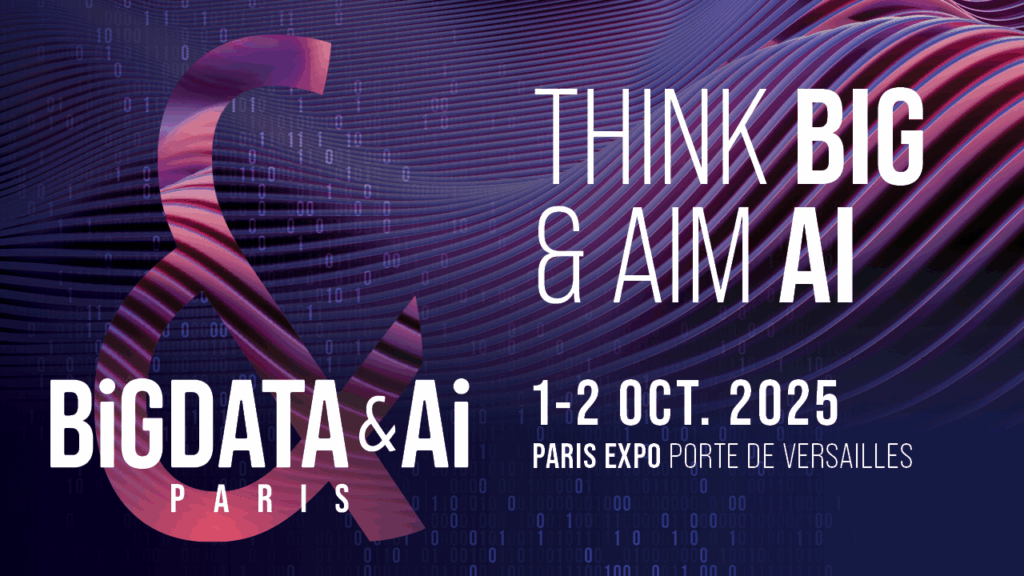As the Big Data & AI Paris conference prepares to open its doors on October 1st and 2nd, the 2025 edition stands out as a pivotal moment for the entire tech ecosystem. Headlined by an opening keynote from renowned mathematician Cédric Villani and featuring a new zone dedicated to helping SMEs adopt artificial intelligence, this year’s event goes far beyond a simple technology showcase. It serves as a critical forum for decoding the global economic upheaval caused by AI, exploring its unique challenges and opportunities from Africa to the world of cinema, and providing a concrete pathway for those still hesitant to join the revolution.
Beyond just a tech event announcement, the powerful emergence of artificial intelligence (AI) raises fundamental questions about our economic, social, and creative future. The Big Data & AI Paris 2025 conference, set for this coming October 1st and 2nd, is more than a simple industry meeting; it’s a crucial crossroads for deciphering these challenges and turning hesitation into action.
The Global Economic Stakes: A Worldwide Wave
AI is no longer a mere innovation; it’s a global economic transformation engine. Projections estimate that AI could increase annual productivity by over 1% by 2030. This technology promises to reshape entire sectors, from healthcare, where it doubles the success rates of clinical trials, to manufacturing, by optimizing production.
However, this revolution presents a major equality challenge: the benefits risk being concentrated in the most developed economies. For Small and Medium-sized Enterprises (SMEs), the challenge is to avoid being left behind. Currently, only a small percentage of their leaders use generative AI, often due to a lack of clearly identified needs. Yet, AI offers concrete solutions to improve marketing, sales prospecting, and decision-making support.
Africa and AI: Between Opportunity and Sovereignty
The African continent is at a tipping point. AI represents a unique opportunity for a “technological leapfrog” to stimulate economic development, create jobs, and improve key infrastructures like energy and transportation. Africa’s AI market, estimated at $4.5 billion in 2025, reflects a booming ecosystem, with startups having raised over a billion dollars in six years.
Nonetheless, significant challenges remain. Mastering this technology is a matter of sovereignty to avoid “AI colonization”. Governments are beginning to develop regulations for ethical use, but investing in human capital and continuous training is crucial to turn potential into reality and create a true “Made in Africa AI”.

Cinema Revolutionized by AI: From Script to Screen
The creative industry, particularly cinema, is being profoundly disrupted by AI.
- Scriptwriting: AI tools like ChatGPT, Genario, or Sudowrite are already helping screenwriters generate ideas, develop characters, ensure script consistency, and even adapt a story to audience expectations by analyzing millions of data points.
- Filmmaking: In pre-production, AI can generate storyboards and analyze market trends to guide strategic choices regarding genres and themes.
- Distribution: Predictive analytics can anticipate a film’s performance and optimize its release strategy.
In this context, initiatives like the “L’Afrique Fait Son Cinéma” (Africans In Film) festival in Paris, which aims to promote African talent, could find new momentum. It’s conceivable that its “Kino-AI Challenge” (an AI-assisted filmmaking challenge) would encourage creators to seek out tech partners. The Big Data & AI Paris conference would then be an ideal platform for these filmmakers to meet software developers and AI experts, creating unprecedented synergies between tech and the silver screen.
Why You Absolutely Must Attend Big Data & AI Paris 2025
For those still hesitant to jump into AI, this event is designed to be a true accelerator.
- Demystify and Make it Concrete: The new SME Support Zone is the direct answer to hesitation. Certified by the “Osez l’IA” government plan, it offers a complete pathway from idea to action with practical workshops, solution pitches, and real-world case studies.
- Direct Access to the Ecosystem: In just two days, an SME leader or project manager can meet with institutions (Bpifrance, French Tech), software vendors, training organizations, and experts to leave with contacts and immediately applicable solutions.
- High-Level Strategic Vision: The event brings together influential figures whose vision is shaping the future of technology and digital policy. Their presence guarantees high-caliber conferences that go far beyond purely commercial pitches.
Among the notable confirmed personalities are:
- Cédric Villani: As a world-renowned mathematician, his perspective on the strategic and ethical dimensions of AI is highly respected, having previously led a major report on the subject for the French government. He will deliver the opening keynote.
- Paul Midy: A Member of Parliament and of the National Council for AI and Digital, he is at the heart of policy decisions regarding the sector’s regulation and development in France.
- Sylvie Houlière-Mayca: As Vice-President of OVHcloud, she represents a major European player in data sovereignty, a key issue in the field of AI.
- Leading researchers and innovators such as Ambre Assor (INRIA, CNRS) and Dr. Sarah Watson (Curie Institute), who showcase the concrete applications of AI in research and health.
The Big Data & AI Paris 2025 conference is a key moment to understand global economic stakes, discover solutions tailored to every sector, and meet the minds building the future of AI. Attending means giving yourself the tools to be an informed actor in this revolution, not just a spectator.


